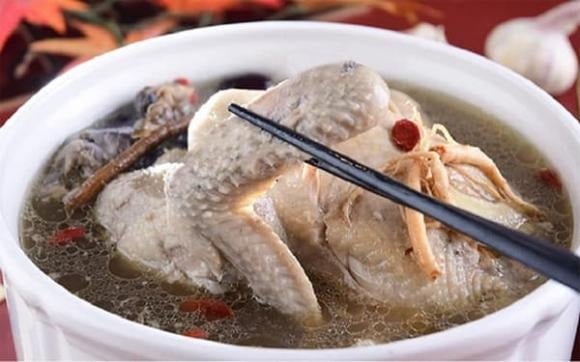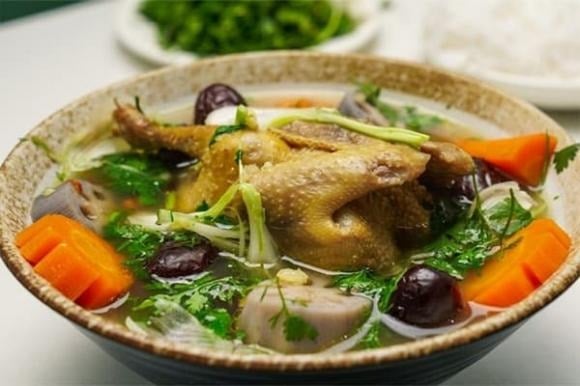Pigeon meat is a highly nutritious food, considered a delicacy since ancient times due to its invigorating properties comparable to ginseng. Research shows that 100g of pigeon meat contains 142 kcal, 7.5g of fat, 17.5g of protein, 13mg of calcium, 237mg of potassium, 307mg of phosphorus, and a plethora of other nutrients.
Notably, pigeon meat boasts a high protein content while maintaining low levels of fat and cholesterol. Thus, its nutritional value rivals that of other meats, earning its reputation as a gourmet choice. In the “Herbal Materia Medica” from the Tang Dynasty (China), there is a famous saying: “One pigeon is worth nine chickens,” highlighting the superior qualities of pigeon meat.
Beyond its delicious taste, pigeon meat is also revered as a precious tonic in Traditional Chinese Medicine. With a neutral nature and a salty flavor, it encompasses a wide range of nutritional benefits. Pigeon meat is believed to tonify the kidneys, strengthen the spleen and stomach, and regulate blood circulation, offering a multitude of health advantages.
Benefits of Pigeon Meat
Prevents Anemia
Rich in iron, pigeon meat enhances the body’s blood-forming capabilities. Additionally, it contains vitamins A, B1, B2, E, and trace elements crucial for blood production. As such, consuming pigeon meat helps prevent and alleviate iron-deficiency anemia. Particularly for women, this meat reduces menstrual pain, boosts blood circulation, and alleviates fatigue associated with anemia.

Nutritional Recovery
Pigeon meat is ideal for individuals recovering from illness or surgery. It not only aids in wound healing but also expedites overall recovery. Containing essential amino acids and minerals, pigeon meat supports protein synthesis and cell regeneration, providing the body with the energy needed for recuperation.
Despite its high protein content, pigeon meat is low in fat, easily digestible, and does not elevate blood sugar or cholesterol levels. This makes it a perfect choice for the malnourished, elderly, individuals seeking health enhancement, postpartum women, and patients with cardiovascular diseases or diabetes.
Wound Healing
One of the standout benefits of pigeon meat is its ability to promote rapid wound healing. With a high collagen content, it accelerates the body’s repair processes and supports tissue regeneration.
The amino acids and minerals in pigeon meat contribute to protein synthesis, red blood cell regeneration, and energy production, facilitating a swift recovery of physical functions after illness or injury.

Brain Health
Pigeon meat is abundant in phospholipids, which stimulate cellular metabolism and decelerate aging in the nervous system. As a result, consuming pigeon meat boosts brain function, enhances memory, and improves cognitive abilities, making it especially beneficial for intellectuals and developing children.
Furthermore, pigeon meat is rich in cephalin, vitamins A, B, E, calcium, and iron, optimizing metabolic processes, rejuvenating brain cells, and ultimately enhancing brain vitality and memory retention. Incorporating pigeon meat into the diet is recommended for those engaged in intellectual pursuits to nurture and sustain brain health.
Skin and Vitality Enhancement
According to Traditional Chinese Medicine, regular consumption of pigeon meat promotes a robust constitution, radiant skin, and enduring vitality. The chondroitin content in pigeon meat is comparable to that of deer velvet, offering significant health benefits. For men experiencing sexual dysfunction or kidney deficiencies, pigeon meat is considered a potent tonic to enhance virility.
Healthy Ways to Cook Pigeon Meat:
Method 1: Braise pigeon with Chinese medicinal herbs such as hoài sơn (poria cocos), long nhãn (wolfberries), mộc nhĩ trắng (white wood ear mushrooms), and hạt sen (lotus seeds) using a double-boiler for approximately 3 hours. This dish is ideal for replenishing energy and nourishing those who are lacking in essential nutrients or suffering from debilitation.
Method 2: Steam pigeon meat with hoàng kỳ (astragalus) and câu kỷ tử (goji berries) until tender. Consume this dish twice a week for five consecutive weeks.
Note: While pigeon meat is highly nutritious, individuals with a fever or internal heat should refrain from consuming it. Those allergic to poultry or suffering from heart disease or high blood pressure should avoid eating pigeon skin and fat due to their high-fat and cholesterol content. People with liver ailments, particularly acute hepatitis, should not overeat pigeon meat. Additionally, refrain from combining pigeon meat with shrimp or catfish to prevent potential allergic reactions.
6 Cooking Habits That Are Ruining Your Meals and Your Health: Bad for Your Heart and Waistline. #3 Will Surprise You!
“Unhealthy cooking habits can take away the joy of relishing delicious meals and impact your family’s health. It’s time to revamp your culinary routines and embrace a healthier approach to cooking. Say goodbye to these common mistakes and watch your dishes transform into mouth-watering, nutritious delights that everyone will love.”



































